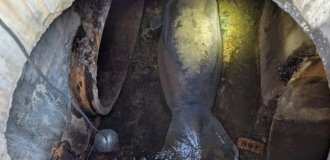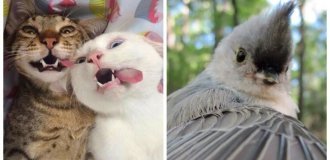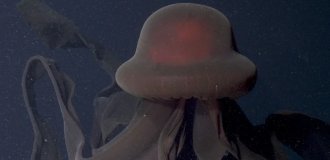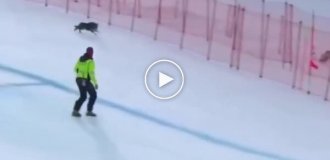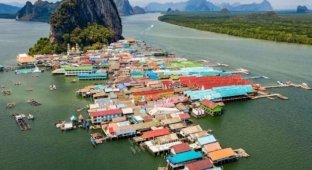How the Uru people live, who build large floating islands from reeds (9 photos)
If necessary, such an island can be easily moved along with all the houses that stand on it. 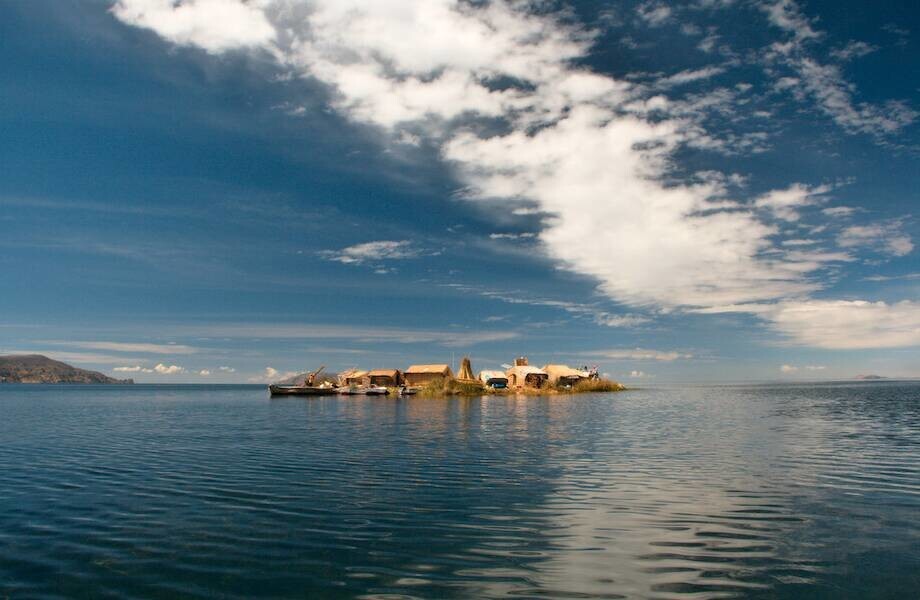
Humans have historically settled near bodies of water, and sometimes right at them. Bajao live in Indonesia, Malaysia and the Philippines, and on on the other side of the world there is another people who build their houses on water. These are Uru, or Uros, and their number today is about three thousand people. They live in Bolivia and Peru on Lake Titicaca, on floating islands, which they themselves built from reeds. So why uru have been leading this way of life for several centuries? 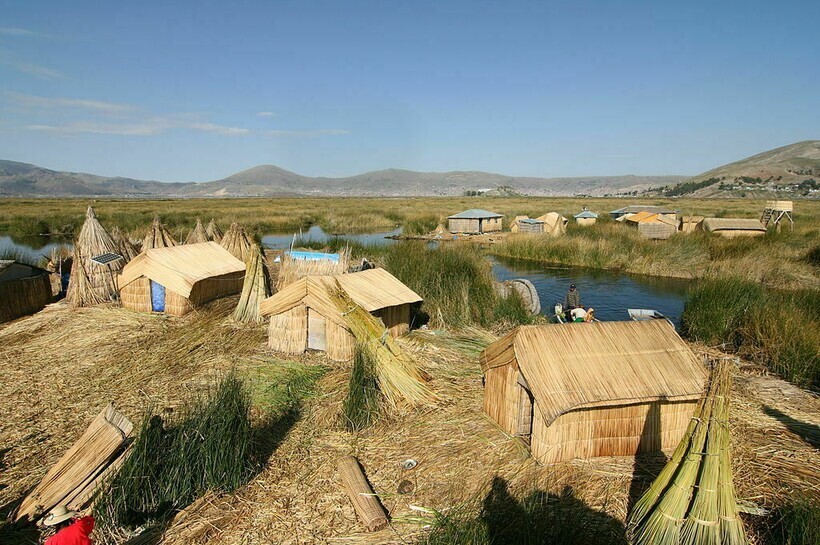
For these Indians, their whole life revolves around the totora cane. Islands were not only built from it: houses, boats, its eat and brew tea from it, uru even treat various diseases with cane and are saved by them from a hangover. 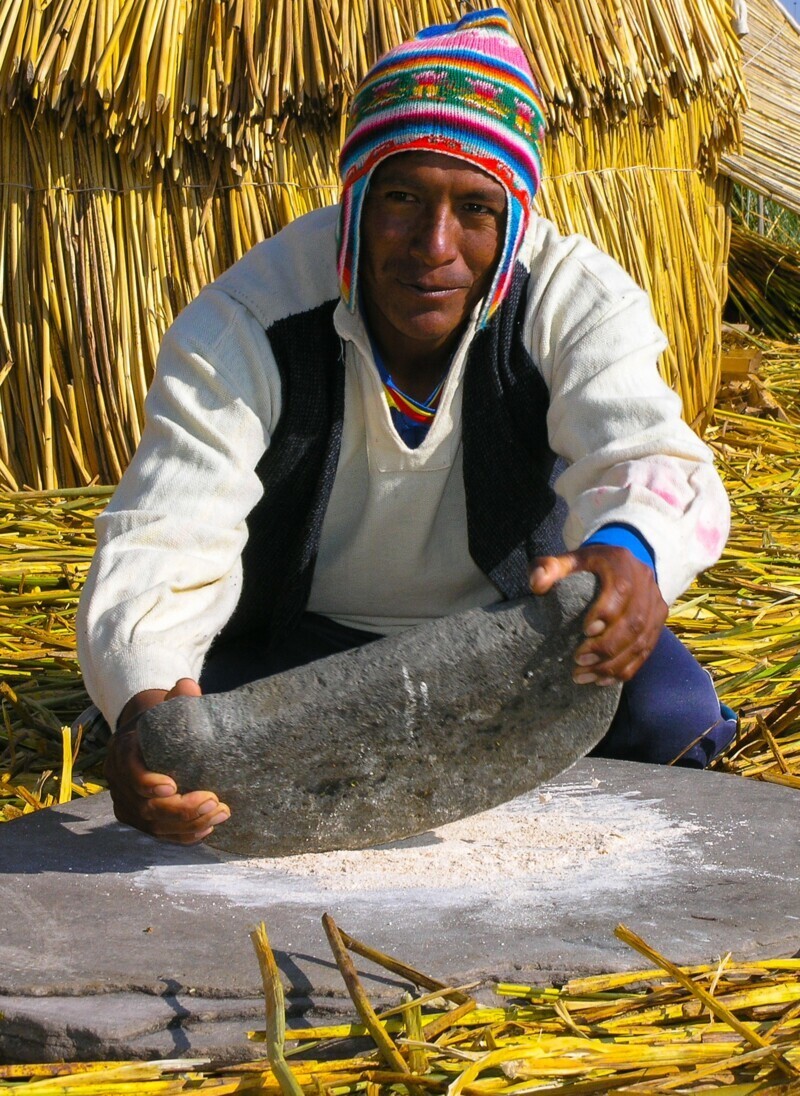
Man grinding cereal
It was not always so: it is believed that the reed islands the Indians moved to feel independent. Thanks to floating islands, the Uru could hide from the Incas who ruled these lands in the 11th-16th centuries. If necessary, the island along with your home could just be moved. And life on the islands was calm: large thickets of reeds on the shore of the lake perfectly hid such settlements. 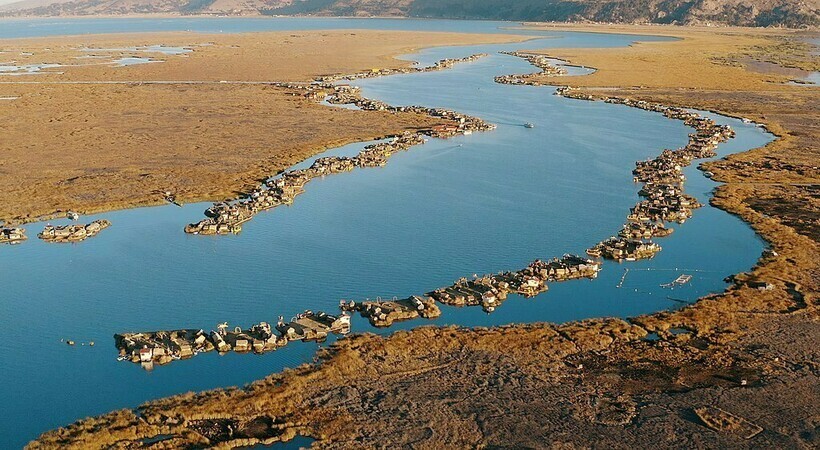
View of the islands from above
Islands are built from strong reed roots, constructing from them pallets and fastening them together. Reed is laid on top several layers and the top one is updated regularly, since it is enough rots quickly. Stones are attached to the bottom of each island, which fit to the bottom: they serve as a kind of anchor. In the past in case danger, the anchor was untied and on the island it was possible to quickly sail away, hiding from the enemy. 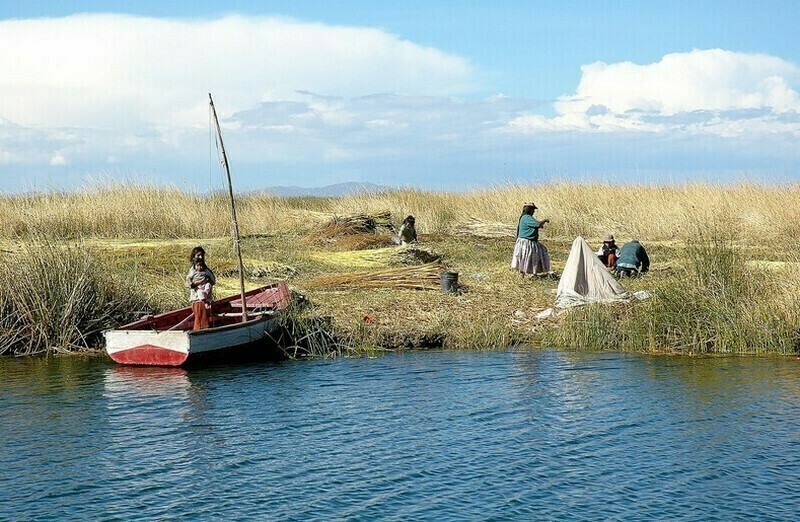
The islands here are different: there are large ones, on which up to ten people live. families, and there are also small ones, about 30 meters wide: on such The islands are usually inhabited by 2-3 families. Uru is cooked in pots on special furnaces, spreading the hearth on a large flat stone. 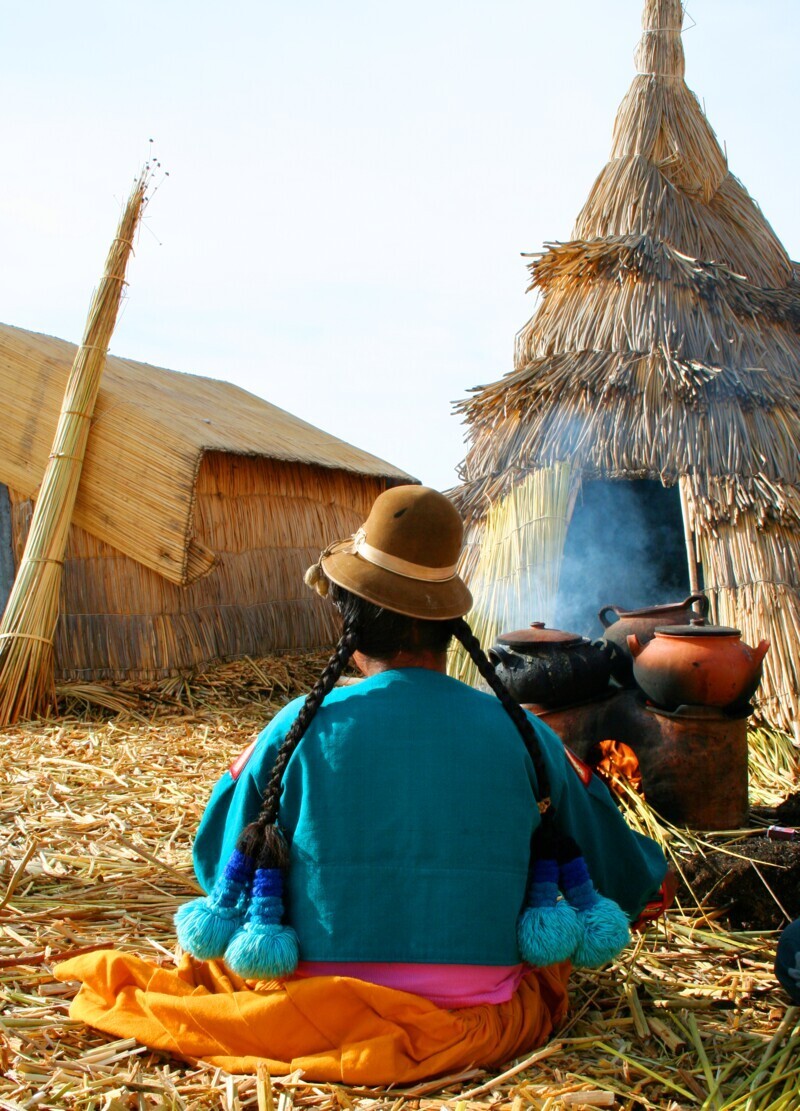
Today, the islands, although they are called floating, but in fact in fact, no one swims on them. For this, uru make boats, also from cane. On boats similar to fabulous boats, the Indians sail on land, because the main part of the products and goods today is from there. Children are also taken to school on boats: there is an elementary school on the islands, and older children go to study on the mainland. 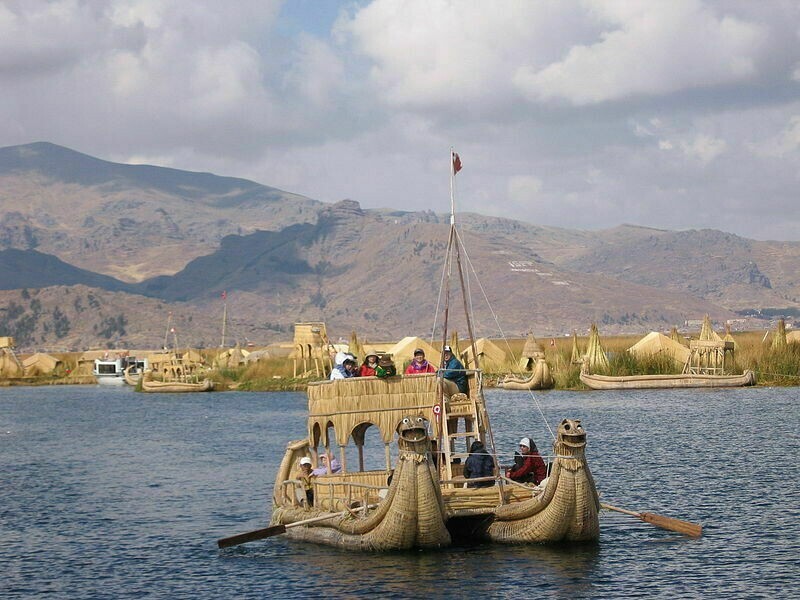
Nowadays, there are few islands: according to various estimates, from 50 to 100. In 2011, more than a thousand people lived on these islands, today that number has dropped significantly, with many moving to land. Once upon a time, the Indians even had their own language - uru, but today it is practically extinct, only a few inhabitants know Uru. The main body of Uru speaks the language of the Aymara Indians: this people lived on the shores of Lake Titicaca, Aymara traded with the Uru for centuries. 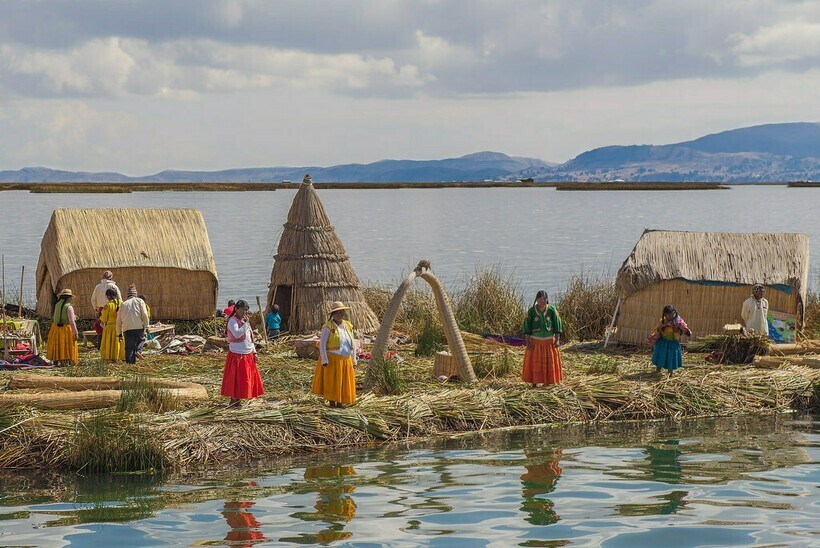
At the same time, the Uru have perfectly learned to combine the traditional image life and modern technology. Their boats are on motors, and many houses equipped with solar panels, so that the houses have electricity, satellite dishes, televisions, telephones. 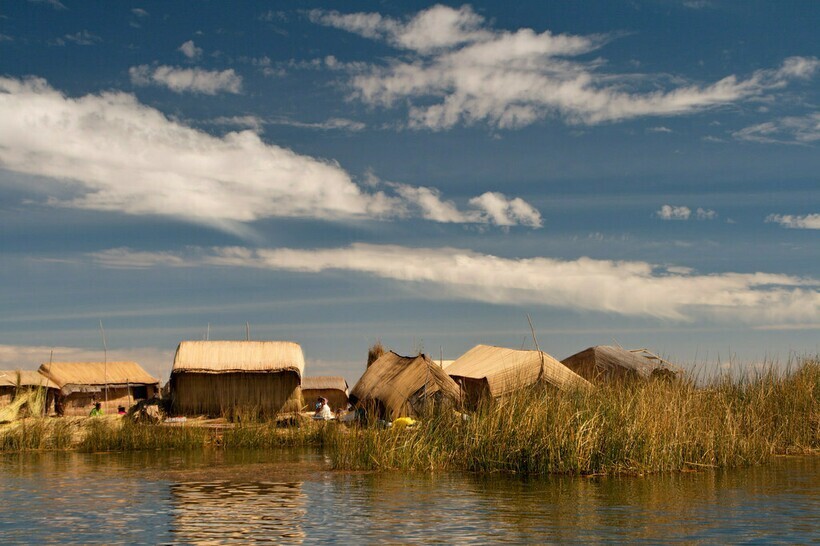
Nowadays, the Uru live on fishing and tourism: part of the islands built specifically to be visited by travelers. However there are those who prefer to live apart, honoring the traditions of their ancestors and striving to preserve their unique culture.



